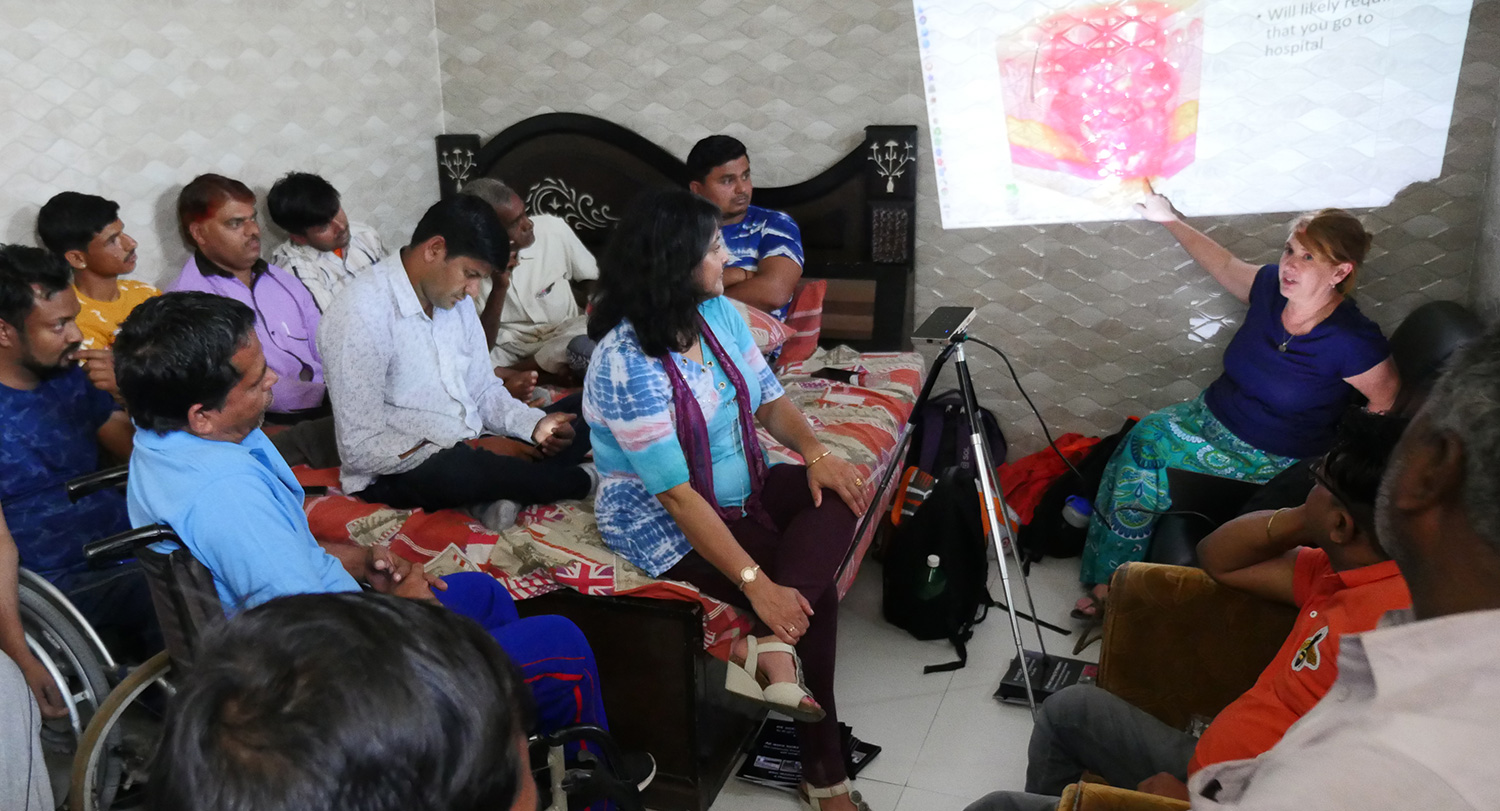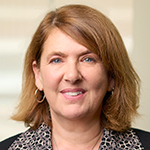
One of Charleston native Susan Newman’s newest missions for improving the health of South Carolinians is to encourage more individuals with disabilities to explore nursing careers.
The USC health sciences endowed professor joined the nursing faculty in July after serving as an assistant dean at the Medical University of South Carolina. Her role at Carolina allows her to increase training opportunities for health care providers — particularly nurses who work with individuals with disabilities — and expand her research efforts.
“We know that the workforce needs to reflect the populations we serve,” Newman says. “There's not a lot of people with disabilities in the nursing workforce.”
Newman’s experience extends to her years as a rehabilitation nurse with a focus area on spinal cord injury. While she was an MUSC doctoral student, her research on the recovery of patients with spinal cord injuries shifted from the hospital setting to focus on the community setting.
“I realized while I was in graduate school that I had no clue about what happened to my patients once they left the rehab hospital,” Newman says.
A significant factor in Newman pursuing the new role at USC was that the National Institutes of Health in 2023 designated people with disabilities as a health disparities population. Previously, that designation covered racial and ethnic minorities as well as sexual and gender identity.

“There are so many things you can do to accommodate a person's disability and still use the nursing knowledge they have in their head.”
This opened the door for funding to support research related to disabilities, health equity and health disparities, Newman says, and the nursing workforce is an important piece of that.
“I think with that designation by NIH last fall, there's a lot more momentum to specifically address issues for folks with disabilities,” Newman says. “There are so many things you can do to accommodate a person's disability and still use the nursing knowledge they have in their head.”
As for her own research, advancements in technology and access to telehealth mean nursing is not just at the bedside. Now, Newman is eager to collaborate with departments that were not previously available to her.
“Coming to a large university where you have schools of engineering and computing, technology does a lot for people with disabilities,” Newman says. “So that’s exciting to explore as well.”
She envisions opportunities to collaborate in new areas, such as artificial intelligence and other emerging technologies, as well as opportunities for cross collaboration with those who serve similar patient profiles.
“Older adult populations sometimes have similar needs as people with disabilities,” Newman says. “I see a lot of synergy.”
Helping guide Newman’s transition to USC has been her longstanding relationship with College of Nursing Dean Jeannette Andrews.
“She was a research mentor of mine when I first started, and I have always kept in touch,” Newman says.
She anticipates working across graduate and undergraduate programs. This includes collaborating with simulation coordinators to create training scenarios where students interact with patients with disabilities.
“I love working with the doctoral students, especially when they're excited about their topic of research,” Newman says. “Helping people learn to think critically about their research topic, helping them network with experts in the field and make connections is a really important part of mentoring.”
Commuting from the Lowcountry, Newman is equally as passionate about her horses. Hank is a 30-year-old off-track thoroughbred who arrived at her farm from a rescue organization 25 years ago, and she has owned Disco since he was born 16 years ago.
“Being at the barn, even if I'm not riding and just puttering around, is a happy place for me,” Newman says. “It's therapy, too.”
Newsman is optimistic she can soon again devote efforts to a peer-support program and interventions for people with spinal cord injuries in India.
Years ago, a non-governmental organization called Empowering Spinal Cord Injured Persons (ESCIP) helped support her travels, which started in Delhi and included a spinal center in Chandigarh.
“COVID put a screeching halt on that, but I'm interested in pursuing it again in the future,” Newman says. “Rehabilitation over there is minimal to nonexistent.”
Newman says she is excited for the switch from administration to teaching because it was time for new challenges.
“This position will allow me to be in a classroom and focus on my research like I've not been able to do,” Newman says. “Now I want to work with the patient populations I love and care about, and this new position will give me space to do that.”